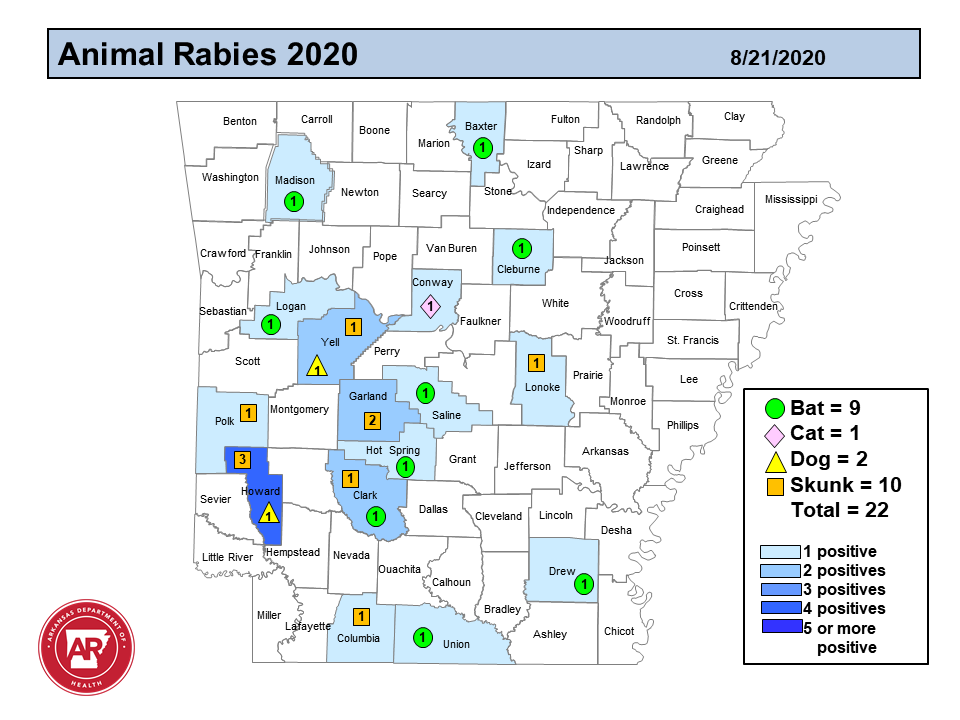Arkansas Animal Public Health Notices
The Arkansas Department of Health and the Arkansas Department of Agriculture keep a close eye on diseases that affect humans and animals, respectively. Whereas the Department of Health monitors diseases that can cross over form animals to humans, the Department of Agriculture monitors infectious diseases that affect animals. This page is dedicated to notices of disease that can affect the Arkansas animal agriculture industry.
Rabies alerts in Arkansas
Rabies is a deadly viral disease that affects the nervous system of warm-blooded animals. It is usually spread by an infected animal biting another animal or person. Rabies is a fatal disease that often ends in death unless treatment is provided soon after exposure.
In Arkansas, rabies lives and circulates in wild skunks and bats. Any mammal can become infected with rabies, including domestic pets such as dogs and cats, agricultural animals such as cows and horses, and humans who have been exposed to rabid animals.
Any animal that is suspected to have symptoms of rabies (excess salivation, abnormal movements such as stumbling, or abnormal behavior such as aggression) should only be handled by qualified persons with appropriate personal protective equipment. An animal found dead with no apparent cause should be considered a rabies suspect and disposal of the dead animal should be done with extreme caution. The Arkansas Department of Health has more information specifically about rabies. Below is the current map of documented positive rabies cases.

Vesicular Stomatitis Virus (VSV)
Vesicular Stomatitis Virus is a contagious virus that affects all hooved animals, causing painful sores around or in the nose and mouth leading to decreased feeding. We had positive equine cases in Benton County in 2020 with those animals being in quarantine.
What is the quarantine rule for VSV in Arkansas?
The rule is that all counties that border a county with quarantined animals need to have a certificate of veterinary inspection for all horses leaving those counties within 5 days of travel, even if it is for travel within the state. The same rule applies to Arkansas counties adjacent to quarantined counties in bordering states such as Oklahoma or Missouri. Once the quarantine period for the positive animals is over, the restrictions for movement are lifted.
Go to the The Arkansas Department of Agriculture website to get more information on animal health alerts.